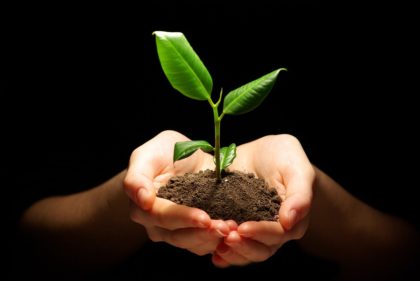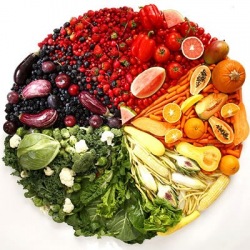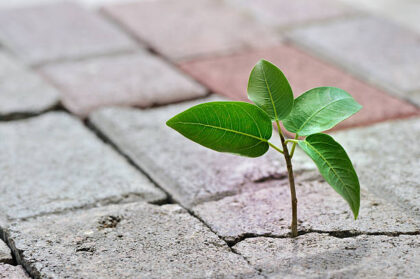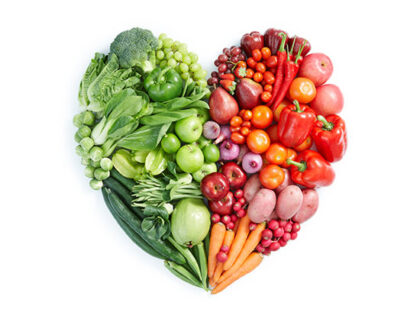
Description
Food and Sustainability
SOCI/ANTH 384
Department of Sociology/Anthropology
Concordia University
Summer 2019
Day/Time: Mon & Wed– 11:45 – 2:30 PM
Professor’s Office: H-1125.12
Office Hours: Mon & Wed 2:30 – 3:30
Classroom – H-431
Is your diet sustainable? To redress the question, let’s instead ask, what types of consequences (positive/negative and intended/unintended) does your diet sustain? Digging deeper, we can ask: What were the labour conditions of the farmers that produced your food? What are the ingredients in your food item and how does that contribute to your health? What is the carbon footprint of your food item? What social inequalities are expressed via your food consumption? What do you want your body to look like and how does food contribute to that body type?
Food is more than just a biological need, it is also a way people interact with the biosphere, express culture and communicate about class/gender/race relations. Food is at the center of many serious social, political and economic issues. These issues include: starvation, obesity, eating disorders, malnutrition, climate change, pollution, biodiversity loss, inequality, colonization, and imperialism, among others.
In this course, students will read and discuss recent publications about food and sustainability and meet a variety of people in and around Concordia University that work with local food initiatives.
Students will focus on the political economy of food by examining how food is produced, transformed, distributed, consumed, and how food waste is managed in different areas of the world. They will take a critical perspective to analyze multinational food corporations, like Bayer, by looking at the consequences of large scale industrialized farming, monoculture, and the privatization of genetics. These consequences include, the use of GMOs and the loss of biodiversity; reliance on fossil fuels and its contribution to climate change; use of glyphosate and the accompanying health effects; seed patents and loss of food sovereignty; use of natural resources and the depletion of water and food supplies; among others.
Students will explore what people are doing to prevent these negative consequences. They will examine the food sovereignty movements, like the work done by La Via Campesina. Students will also look at sustainable production, like seed saving, indigenous practices, permaculture, rooftop gardening, and organic farming. Students will learn about alternative food networks that are developing socially responsible, environmentally sustainable, just, and secure food practices.
This course employs the theories and methodologies of sociology and anthropology. Political economy is a paradigm in the tradition of Karl Marx. It draws our attention to the power structure (political, economic, and social) that governs the society and the counter-movements that challenge the existing power structure. The social economy perspective in the tradition of Karl Polanyi will be used to imagine post-capitalist alternatives. The capitalist system has experienced many crises, and the current crisis, both ecological and economic, provides a great opportunity for the transition to global futures that are egalitarian, inclusive, democratic, and sustainable. This course also employs the tradition of critical self-knowledge and auto-ethnography. Students are asked to examine their personal involvement in industrial food systems and alternative food systems as individuals and a collective.
An important focus of this course is community engagement. Students will participate with local food projects in and around Concordia University. Students will perform an action-based research project by creating a new food organization, participating with and enhancing a current food project, and/or conducting research about university food systems. Students can even create content for the Concordia Student-Run Food Group Research project:
Course Materials and Text:
Students are expected to complete ALL the designated readings and watch ALL of the assigned videos BEFORE EACH CLASS. Students are also expected to attend ALL classes and participate in class discussions.
The required readings are available at the Concordia Coop Bookstore (www.co-opbookstore.ca)
Barilla Center for Food and Nutrition, & Nierenberg, D., (2018) Nourished Planet: Sustainability in the Global Food System 3rd ed., Island Press.
Holt-Gimenez, E. (2017) A Foodie’s Guide to Capitalism: Understanding the Political Economy of What We Eat, Monthly Review Press, New York.
The power-point lecture notes will be posted on the course website before each class.
Recommended readings:
Oppenlander, R. (2013) Food Choices and Sustainability: Why Buying Local, Eating Less Meat, and Taking Baby Steps Won’t Work, Langdon Street Press.
Sumner, J. (2016) Learning, Food, and Sustainability: Sites for Resistance and Change, Palgrave MacMillan.
URLs and other electronic sources may be posted on the course website from time to time. Please visit the course website to get this material.
Course Format
This course consists of a variety of pedagogical styles including lectures, discussions, guest speakers, field trips, community service learning and/or experiential learning. Students are expected to read the required text before coming to class. In class, students engage with each other through interactive activities, discussions and by talking with people who work with food – production, transformation, distribution, and waste management. At times, the class participates in fieldtrips on and off campus. Students will be notified in advance by e-mail and in class prior to these events. Students also take turns preparing food items for the class so that we have snacks as we learn. Students work out a schedule in the first weeks of the course.
Course Evaluation
| Assignments | Due Date | Grade Weight |
| Participation | Ongoing | 10 |
| Action Research Project Proposal | Due July 10th | 15 |
| Action Research Project | August 13th | 30 |
| Food Blog 1 | July 24th | 15 |
| Cooking Project | Report Due August 12th | 15 |
| Reading Response | 4 Randomly Chosen Classes | (Best 3/4 = 5 Points Each) 15 |
| Total 100% |
Participation: The participation grade is based on attendance, involvement in in discussions, participation in classroom activities and supplemental tasks (i.e. you will grow a plant from seed and will inform classmates about your experience with the plant). As an assignment, students will cook a meal to share with the class. Students can bring food on more than one occasion to improve their participation grade.
Action Research Project: The objective of this assignment is to give students hands on experience with transformative food movements. Students will perform an action-based research project by creating a food project and/or participating with an already existing community food initiative at Concordia University or in the community at large. Students may participate in a group project and submit the report as a group. Students will be evaluated based on the depth of their involvement with the project, clearly reporting the project, and an oral presentation of the project. Students are encouraged to contribute to the Concordia Food Groups Research Project (www.concordiafoodgroups.ca).
Action Research Project Proposal: Students will write a proposal for the action research project they want to partake in. Students may participate in a group project and submit the proposal as a group. Students must (1) identify a food group to participate with or a food project to create, (2) outline a specific timeline for the project, (3) summarize their role in the project, (4) describe how you intend to write their final report, (5) link the topic to class readings and other food issues.
Blog Posts: Students will write a blog posts of about 600 words for the www.concordiafoodgroups.ca website. For the first blog post students can (1) attend a food related conference organized by a community group or participate in an ‘action’ related to food and/or sustainability and write about the conference/action, (2) interview a community group and make the findings available via www.concordiafoodgroups.ca (3) produce a brief research report (with five sources) about a food related topic that is approved by me (Erik Chevrier). Blog posts must critically analyze the topic in a clear, concise, informative, and interesting manner and should link the topic/conference/interview to the class readings. The blog must address an appropriate audience and make sure the information is conveyed to this audience based on their level of knowledge of the subject matter. Students with video production skills can produce a video instead of a blog, however this must also be approved by me (Erik Chevrier).
Cooking Project: Students must prepare at least one meal to bring and share with the class. Students will write a short blog of about 600 words about the practices, attitudes, and beliefs as well as the networks and institutions surrounding the production, distribution, and consumption of the food item they prepared. They will also include the recipe.
Reading Responses: Students will be asked four times (randomly), at the beginning of class, to summarize the chapter that was assigned for that class. The objective of this assignment is to make sure students are reading the required material. Students may use (only) hand written notes to help them write their summaries. Material written via computer will NOT be allowed. Students will also NOT be allowed to look at the readings. Three of the four best responses will be counted. The summaries should (1) identify the central claim(s) or thesis(es) of the text articulated in the student’s own words, (2) identify the supporting evidence for the claim(s) and the key concepts introduced, (3) relate the text to other examples that support or contradict the central claim or thesis.
Letter Grade Equivalency
Your numerical grades will be converted to letter grades as follows:
A+ (93 – 100%) B+ (77 – 79.9%) C+ (67 – 69.9%) D+ (57– 59.9%)
A (85 – 92.9%) B (73 – 76.9%) C (63 – 66.9%) D (53 – 56.9%)
A- (80 – 84.9%) B- (70 – 72.9%) C- (60 – 62.9%) D- (50 – 52.9%)
F < 50%
Lecture Schedule: Themes and Required Readings
This is a TENTATIVE schedule and is subject to change. Be sure to consult the course website regularly to be aware of any changes.
Course schedule, Topics and Required readings:
June 26th – Introduction to Food and Sustainability
July 3rd – Introduction to the Campus/Community Food Organizations in and around Concordia
Barilla Center for Food and Nutrition, & Nierenberg, D., (2018) Nourished Planet: Sustainability in the Global Food System 3rd ed., Island Press.
Chapter 1 – Food for All (pp. 1 – 35)
July 8th – Food, Sustainability and the Economy
Barilla Center for Food and Nutrition, & Nierenberg, D., (2018) Nourished Planet: Sustainability in the Global Food System 3rd ed., Island Press.
Chapter 2 – Food for Sustainable Growth (pp. 55 – 95)
July 10th – Food, Sustainability and Health
ACTION RESEARCH PROPOSAL DUE
Barilla Center for Food and Nutrition, & Nierenberg, D., (2018) Nourished Planet: Sustainability in the Global Food System 3rd ed., Island Press.
Chapter 3 – Food for Health (pp. 115 – 146)
July 15th – Food, Sustainability and Culture
Barilla Center for Food and Nutrition, & Nierenberg, D., (2018) Nourished Planet: Sustainability in the Global Food System 3rd ed., Island Press.
Chapter 4 – Food for Culture (pp. 159 – 189)
July 17th –Food, Sustainability and Capitalism
Holt-Gimenez, E. (2017) A Foodie’s Guide to Capitalism: Understanding the Political Economy of What We Eat, Monthly Review Press, New York.
Introduction – Do Foodies Need to Understand Capitalism? (pp. 13 – 22)
July 22nd – History of Food and Sustainability
Holt-Gimenez, E. (2017) A Foodie’s Guide to Capitalism: Understanding the Political Economy of What We Eat, Monthly Review Press, New York.
Chapter 1 – How our Capitalist Food System Came to Be (pp. 23 – 56)
July 24th – Food Commodities
FOOD BLOG DUE
Holt-Gimenez, E. (2017) A Foodie’s Guide to Capitalism: Understanding the Political Economy of What We Eat, Monthly Review Press, New York.
Chapter 2 – Food, A Special Commodity (pp. 57 – 82)
July 29th – Food, Land and Property
Holt-Gimenez, E. (2017) A Foodie’s Guide to Capitalism: Understanding the Political Economy of What We Eat, Monthly Review Press, New York.
Chapter 3 – Land and Property (pp. 83 – 114)
July 31st – Food and Agriculture
Holt-Gimenez, E. (2017) A Foodie’s Guide to Capitalism: Understanding the Political Economy of What We Eat, Monthly Review Press, New York.
Chapter 4 – Capitalism, Food and Agriculture (pp. 115 – 142)
August 5th – Food, Race, Gender and Class
Holt-Gimenez, E. (2017) A Foodie’s Guide to Capitalism: Understanding the Political Economy of What We Eat, Monthly Review Press, New York.
Chapter 5 – Power and Privilege in the Food System: Gender, Race, Class (pp. 143 – 174)
August 7th – Alternative Food Networks
Holt-Gimenez, E. (2017) A Foodie’s Guide to Capitalism: Understanding the Political Economy of What We Eat, Monthly Review Press, New York.
Chapter 6 – Food, Capitalism, Crises and Solutions (pp. 175 – 212)
August 12th – Transformative Food Systems
COOKING REPORT DUE
Holt-Gimenez, E. (2017) A Foodie’s Guide to Capitalism: Understanding the Political Economy of What We Eat, Monthly Review Press, New York.
Conclusion – Changing Everything: Food, Capitalism, and the Challenges of Our Time (pp. 213 – 240)
August 13th –Conclusion and Potluck
ACTION RESEARCH PROJECT DUE
Late assignment policy:
Unless you are given permission in advance, late assignments will not be accepted without adequate documentation of medical or personal emergencies.
Handing in Assignments:
All assignments MUST be submitted in hard copy at the beginning of class on the due date. Any assignment submitted electronically will be subject to a reduction of 10% of the value of the assignment.
A list of Student Services and Useful Resources
Counselling and Psychological Services: http://concordia.ca/students/counselling-life-skills
Concordia Library Citation and Style Guides: http://library.concordia.ca/help/howto/citations
Student Success Centre: http://concordia.ca/students/success
Health Services: http://concordia.ca/students/health
Financial Aid and Awards: http://concordia.ca/offices/faao
HOJO (Off Campus Housing and Job Bank): http://csu.qc.ca/hojo
Academic Integrity: http://concordia.ca/students/academic-integrity
Access Centre for Students with Disabilities: http://concordia.ca/offices/acsd
CSU Advocacy Centre: http://csu.qc.ca/advocacy
Dean of Students Office: http://concordia.ca/offices/dean-students
International Students Office: http://concordia.ca/students/international
Student Hub: http://concordia.ca/students
Sexual Assault Resource Centre: http://concordia.ca/students/sexual-assault.html
Indigenous Directions: http://concordia.ca/about/indigenous.html
University Rights and Responsibilities
Academic Integrity: “The Academic Code of Conduct sets out for students, instructors and administrators both the process and the expectations involved when a charge of academic misconduct occurs. The regulations are presented within the context of an academic community which seeks to support student learning at Concordia University.” (From Article 1 of the Academic Code of Conduct). Full text:
http://www.concordia.ca/students/academic-integrity/offences.html
Plagiarism: The most common offense under the Academic Code of Conduct is plagiarism, which the Code defines as “the presentation of the work of another person as one’s own or without proper acknowledgement.” This includes material copied word for word from books, journals, Internet sites, professor’s course notes, etc. It refers to material that is paraphrased but closely resembles the original source. It also includes for example the work of a fellow student, an answer on a quiz, data for a lab report, a paper or assignment completed by another student. It might be a paper purchased from any source. Plagiarism does not refer to words alone –it can refer to copying images, graphs, tables and ideas. “Presentation” is not limited to written work. It includes oral presentations, computer assignment and artistic works. Finally, if you translate the work of another person into any other language and do not cite the source, this is also plagiarism. In Simple Words: Do not copy, paraphrase or translate anything from anywhere without saying where you obtained it! Source: Academic Integrity Website: http://concordia.ca/students/academic-integrity
Disabilities: The University’s commitment to providing equal educational opportunities to all students includes students with disabilities. To demonstrate full respect for the academic capacities and potential of students with disabilities, the University seeks to remove attitudinal and physical barriers that may hinder or prevent qualified students with disabilities from participating fully in University life. Please see the instructor during the first class if you feel you require assistance.
For more information please visit http://concordia.ca/offices/acsd
Safe Space Classroom: Concordia classrooms are considered ‘safe space classrooms’. In order to create a climate for open and honest dialogue and to encourage the broadest range of viewpoints, it is important for class participants to treat each other with respect. Name-calling, accusations, verbal attacks, sarcasm, and other negative exchanges are counter-productive to successful teaching and learning. The purpose of class discussions is to generate greater understanding about different topics. The expression of the broadest range of ideas, including dissenting views, helps to accomplish this goal. However, in expressing viewpoints, students should try to raise questions and comments in ways that will promote learning, rather than defensiveness and feelings of conflict in other students. Thus, questions and comments should be asked or stated in such a way that will promote greater insight into the awareness of topics as opposed to anger and conflict. The purpose of dialogue and discussion is not to reach a consensus, nor to convince each other of different viewpoints. Rather, the purpose of dialogue in the classroom is to reach higher levels of learning by examining different viewpoints and opinions with respect and civility.
I acknowledge that Concordia University is located on unceded Indigenous lands. The Kanien’kehá:ka Nation is recognized as the custodians of the lands and waters on which we gather today. Tiohtiá:ke/Montreal is historically known as a gathering place for many First Nations. Today, it is home to a diverse population of Indigenous and other peoples. We respect the continued connections with the past, present and future in our ongoing relationships with Indigenous and other peoples within the Montreal community. (Indigenous Directions Leadership Group, Feb. 16, 2017)




